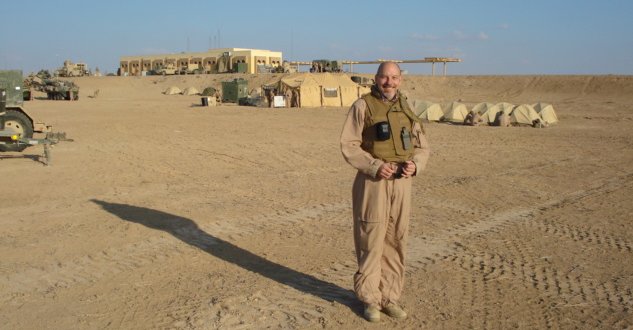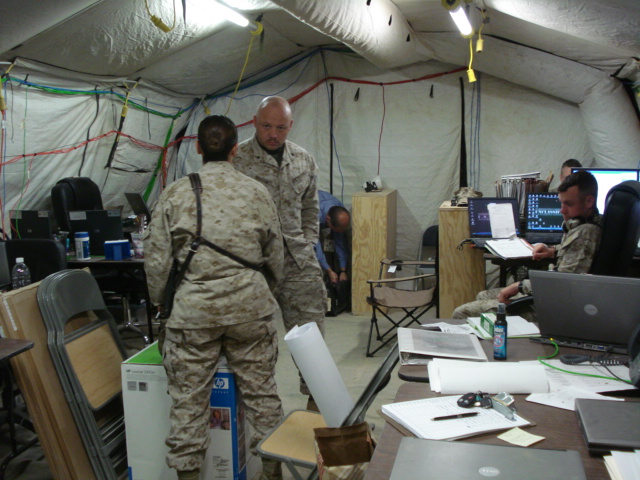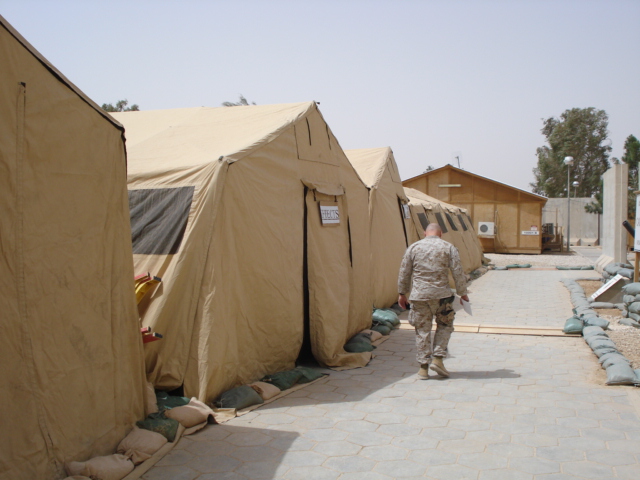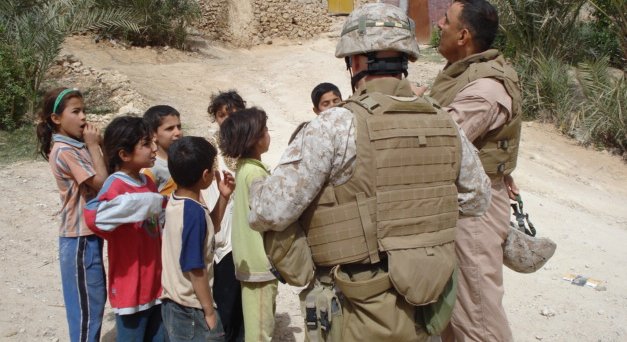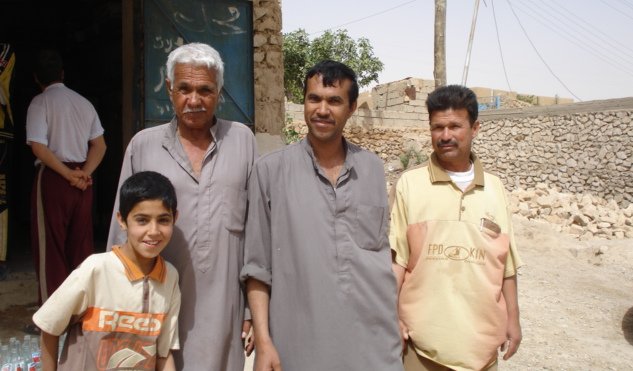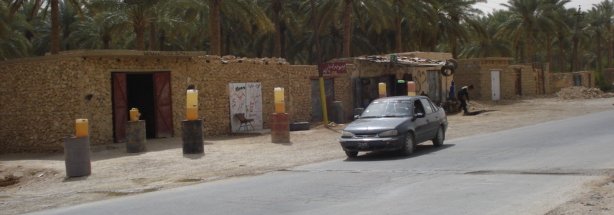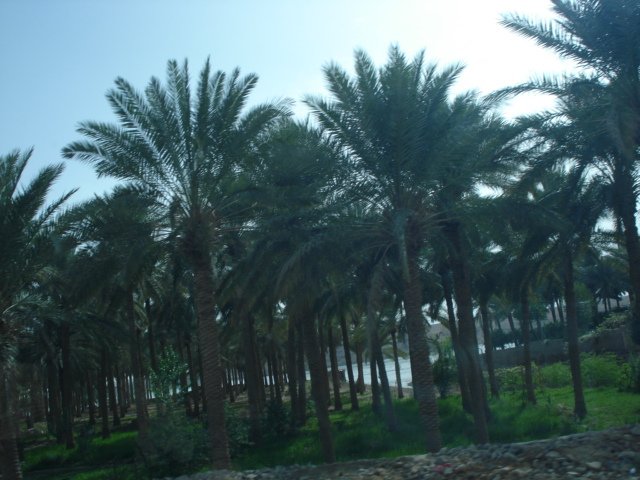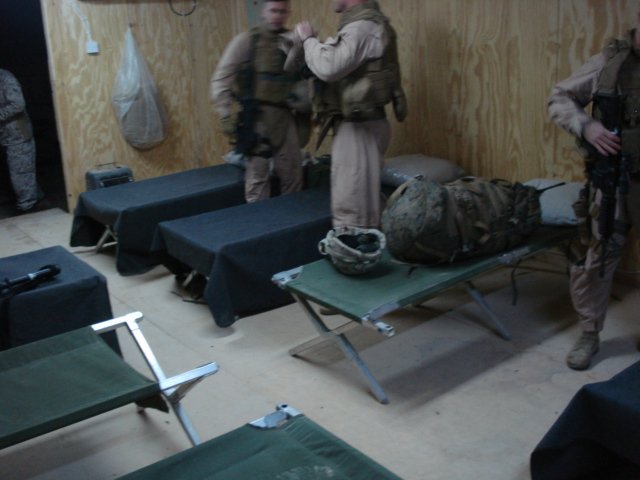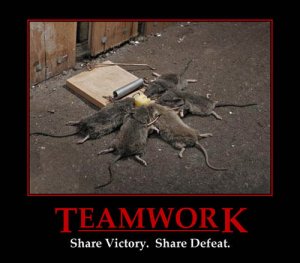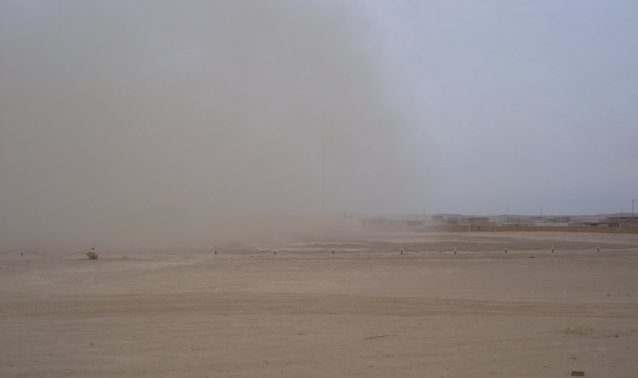
I often wake up at night and don’t know where I am. I think I am back in Iraq and even when I am in Iraq I often think I am someplace else. I think this comes more from the constant moving around than from Iraq specifically, but my dreams of Iraq remind me that I will soon be going back to Anbar.
Modern travel makes for a strange phenomenon. You can be in the yellow desert one day and back on the green grass of home the next. And then back in the desert again the day after that. In America now, the world of Iraq means nothing. It is like a dream, maybe a nightmare, but it is unreal. Right now, sitting in Virginia, it feels like I never left home. I know that in a few days when I get back to Iraq, it will seem like I have always been there. The two worlds do not mix, even at the edges. That is probably a good thing.
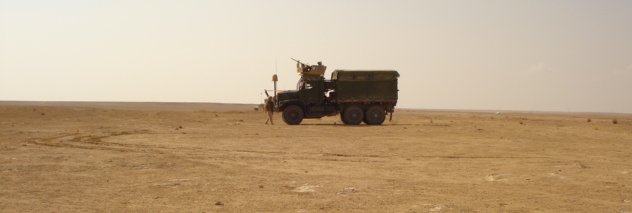
Americans are not paying much attention to Iraq any more. I watch the news every day and there is not much coverage. What news they do feature is is formulaic. People seem to have made up their minds re Iraq and every new piece of news is trimmed to fit the preconceived perception. I am afraid that some people are willing to throw away our success for the short term pleasure of getting out. Candidates are arguing who can get out quicker. It is silly and pernicious but popular. The media has frozen our image of Iraq in 2006 and this is not good.
People don’t ask me much about Iraq. They either don’t care or think they already know it all and I understand that they don’t want to hear my anectdotes. I am not sure which ones I would tell anyway. Some of the best stories are those I cannot share, at least not yet. Beyond that, it is hard to communicate unless you share some basic background & assumptions. People seem to think Iraq is a constant struggle to stay alive. They don’t believe me when I tell them that most Iraqis I encounter are friendly and open and I generally do not feel threatened. The danger is only sort of background noise; the real challenge is just the unrelenting nasty surroundings and climate. The heat and the dust is beyond most people’s experience, so there is not much use in trying to explain that either. Riding in helicopters is another hard thing to explain. I can explain what it is like to ride, but I cannot explain what it is like when that ride becomes merely an unpleasant routine and explaining how it feels to be sitting in a small space on that helicopter as it vibrates in the hot sun is beyond words.

I watched “Lost” yesterday. They had a street scene that was supposed to be Iraq. That is the perception people have. Chrissy asked me if it was like that. It’s not. But I could not really explain how it was different.
Below – the lizard blends with his surroundings
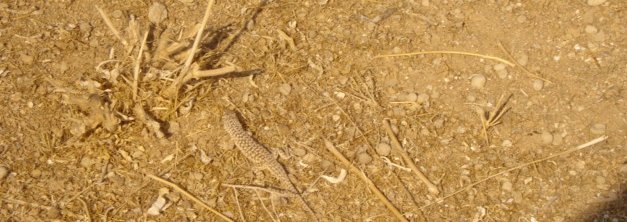
I am not looking forward to going back. My perceptions have changed. In September I was afraid of the danger. I am still aware that risk remains, but now my main focus is on the plain discomfort. I know what that will be like. On the other hand, I am looking forward to getting back to my colleagues and the important work we are doing. Back in September I had no idea we would be doing so much and such a variety of things. I regret that I will not see most of the projects achieve their full results. I will not see most of the seeds we planted grow. On the other hand, my curiosity is not so powerful as to make me want to stay beyond September. My successor can pick up where I left off. If I do my job right, it will be easy to transition. Nobody is indispensible. I am sure the new guy will bring new skills and talents to the job. My job will be done. My year in Iraq will be over. I will never to back and my dreams of Iraq will fade into the yellow haze. I just hope it will have been worth it. Actually, the best thing would be if it is so successful that people say it would have happened anyway.
